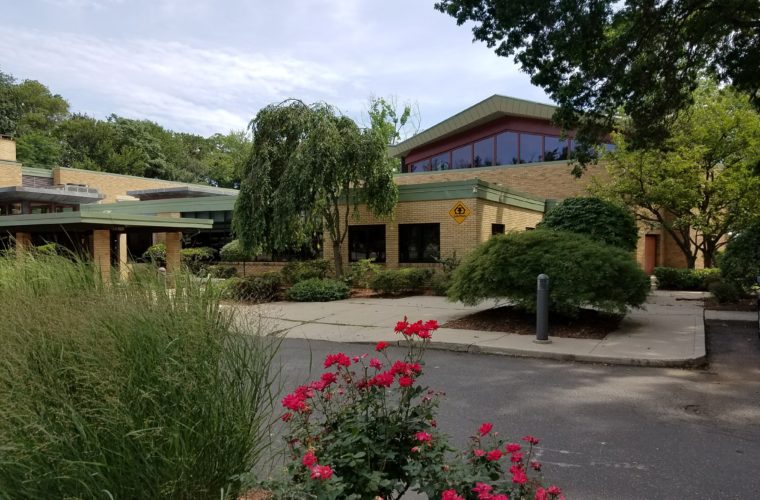Areas of Inclusion: Adults in Communal Life, Architectural & Physical Accommodations and Transportation, Autism, B’nai Mitzvah, Blindness, Early Childhood Education, General Inclusion, Parents of Children with Disabilities, Religious School, Technology, and Worship
About the Congregation
2710 Park Avenue
Bridgeport, CT 06604
Number of Congregants: 700
Contact Information
Ira Wise
Inclusion Programming
Does this congregation have an inclusion committee?
Yes
Developing Our Program
It began in our Religious School and spread organically throughout the congregation. We began by addressing the needs of a single child with profound special needs as well as many children with variations of ADD and ADHD. We committed ourselves making Jewish learning and community for every child, no matter their type of need.
Number of people involved in the effort: 45
Involving People with Disabilities
The responses to our pre-school and religious school aged children were developed in close consultation with parents of those children. The physical needs accommodations in our building were developed by our leadership, who spoke with those most directly impacted. One or two chose to become more involved in the process.
Funding This Effort
This is a multifaceted, systemic approach. Funding sources have varied. We host a monthly gathering of developmentally challenged adults with the support of several communal organizations and significant donations from an individual family and from a local professional organization.
Our Keshet program for families of profoundly challenged preschoolers and the ability to hire adult aids for these same children when they enter our religious school (both as inclusion and special classroom students) is funded by a special fund to which we encourage people to contribute. There have been a few families who have been frequent and regular contributors.
The initial Keshet program was funded by two gifts which had been solicited by our then assistant rabbi.
The original funding for an adult aid was provided by the family of the child who was served by that aid. They were not solicited, but offered the funding.
We now (for the past ten years) have our special needs/inclusion coordinator's salary included as a regular line item under faculty payroll. It is not even a conversation for the budget committee. There is wide-spread agreement that this is an essential position.
Our director and coordinator have both participated in Matan Institutes and were funded by Matan.
Helpful Agencies & Organizations
We initially worked with a therapist in the community to develop the Keshet program.
Matan has been an invaluable resource in recent years.
Spreading Awareness About Our Work
It is in our website and most printed material that passes through the hands of people interested in our congregation and our schools.
Process & Sharing
Marketing Documents Indicating Our Commitment to Inclusion
History, Materials & Processes that Guided Our Approach
This is best provided in conversation. We have been evolving this process for over 20 years. In that time, we have not only developed ways of meeting needs in our pre-school and religious school, but have addressed a variety of physical needs as well. 16 years ago, a significant rationale for a capitol building campaign was to increase physical accessibility. The bima was lowered and a ramp installed. An elevator was added as was a powered entrance door at that time.
Evidence of Successful Inclusion Efforts
We have had many people join our congregation because of our inclusive approach. We have even had the extended family of a community rabbi come to us because they felt their previous congregation was not willing to be responsive.
Evidence of Changing Attitudes
We have made a concerted effort to teach our membership to use people-first language. Otherwise, we believe our membership have had a pretty positive attitude. The program for developmentally challenged adults goes back more than two decades.
How We're Using and Sharing the Disabilities Inclusion Learning Center
TBA
Future Inclusion Efforts
We have just added a live-stream camera to our sanctuary to assist those who are not able to come into the building for services. We hope to continue to meet the needs of each individual, regardless of need or age. Sometimes it means making a programmatic or structural change. Given the level of accommodations we have developed to date, we believe what is most needed is a listening ear to help us learn what individual needs still need to be met.


